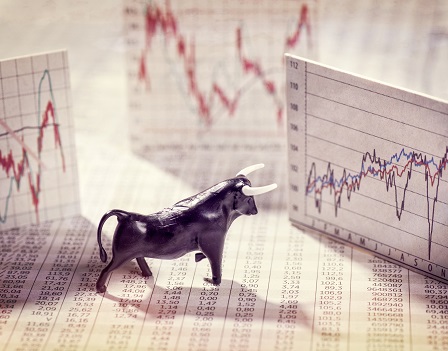
Earlier this week, the stock market reached an impressive milestone – the longest bull market in history! At least that is what we are all being told. But is it true?
At the risk of accusing the media of reporting “fake news,” I thought it would be worthwhile to challenge this notion just a little bit.
First, let’s set the table. Generally, the term “bull market” refers to an era of market growth of more than 20% that is uninterrupted by a 20% downturn. A “bear market” is generally accepted as the opposite – a 20% decline from a market peak.
The headlines about the current bull market being the longest in history overlook one important fact; between May and October of 2011, the S&P 500 dropped 22%!1 The catch is that this decline happened on an intra-day basis. So there was a 20% decline, but the market recovered before the end of the trading day to close at a level that fell just shy of the magical 20% decline. And since closing prices are what get measured, you can see how we wake up to headlines like those we’ve seen this week.
Taking a step back, I’d ask who decided that a 20% move is the appropriate barometer. In our industry, concepts that exist just because “that’s how things have always been done” are often conflated with facts. It is wise to challenge the status quo!
I can cite other examples of such false equivalencies. One that I commonly hear is that “the market is nearing the end of the cycle.” The presumption in this statement is that it can be known, or reasonably predicted, when a market “cycle” will end. I have heard this specific comment for several years, and I’ve seen investors take action based on the presumptive truth to this statement. Yet it is obvious that investors heeding such a notion would have left lots of money on the table as the market climbed throughout 2016, 2017, and so far this year.
Here’s an (admittedly extreme) analogy. Consider the people who pop up every few years to claim that the world is going to end, and that the end will occur on a very specific date. When the sun inevitably rises the next day, most people are fine because they ignored the “experts.” But imagine if you had actually made important life decisions based on these wild, baseless predictions – you might be living in a concrete bunker basement surrounded by cans of tuna!
One could argue for the rest of eternity how to appropriately define a bull or bear market, and what the best “response” should be to either scenario. I’m here to say that those arguments are all a waste of time. When it comes to investing, don’t let the headlines (good or bad) affect your actions. Instead, as we are fond of saying, develop a sound investment strategy, including a well thought-out asset allocation plan, and stick with it.


